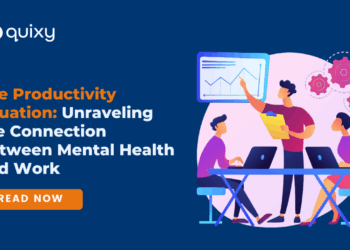Delving into the crucial topic of discussing mental health concerns with your primary care physician, this guide aims to provide valuable insights and practical tips in a manner that is both informative and engaging.
The following paragraphs will shed light on the preparation, initiation, symptom sharing, treatment planning, and ongoing communication involved in these vital discussions.
Introduction to the Topic

Discussing mental health with your primary care physician is crucial for overall well-being. Your primary care physician plays a key role in mental health care by providing initial assessments, referrals to specialists if needed, and monitoring your mental health alongside your physical health.
Research has shown that addressing mental health concerns with your primary care physician can lead to improved outcomes and better overall health.
Role of Primary Care Physician
Primary care physicians are often the first point of contact for individuals seeking medical help. They are trained to diagnose and treat a wide range of health conditions, including mental health issues. Your primary care physician can conduct screenings, provide counseling, prescribe medications, and coordinate care with mental health professionals.
By discussing your mental health concerns with your primary care physician, you can receive timely interventions and support tailored to your needs.
Benefits of Addressing Mental Health Concerns
- According to a study published in JAMA Internal Medicine, patients with depression who received treatment from their primary care physician showed significant improvement in symptoms.
- Research has shown that integrating mental health care into primary care settings can lead to better outcomes for patients with mental health conditions, such as improved treatment adherence and reduced hospitalizations.
- Discussing mental health concerns with your primary care physician can help in early detection of mental health issues, leading to timely interventions and improved quality of life.
Preparation for the Appointment
Before meeting with your primary care physician to discuss your mental health, it's essential to prepare yourself. This involves organizing your thoughts and feelings, making a list of symptoms or concerns to share with the physician, and gathering relevant medical history information to discuss during the appointment.
Organizing Your Thoughts and Feelings
- Take some time to reflect on how you have been feeling mentally and emotionally.
- Write down any specific symptoms you have been experiencing, such as changes in mood, sleep patterns, or energy levels.
- Jot down any concerns or questions you may have about your mental health.
Making a List of Symptoms or Concerns
- Compile a list of your symptoms or concerns to discuss with your physician during the appointment.
- Include details such as when the symptoms started, how often they occur, and any triggers you have noticed.
- Be honest and open about your struggles, as this will help your physician provide you with the appropriate support and treatment.
Gathering Relevant Medical History Information
- Review your medical history, including any previous mental health diagnoses, treatments, or medications.
- Make note of any family history of mental health conditions, as this information can be valuable for your physician.
- If you have seen a mental health professional in the past, consider bringing any relevant reports or records to the appointment.
Initiating the Conversation

Starting a conversation about mental health with your primary care physician can be daunting, but it is essential for receiving the care and support you need. Here are some tips on how to initiate this important discussion.
Approaching Your Physician
When you are ready to talk to your primary care physician about mental health concerns, it's important to approach the conversation with honesty and openness. Remember that your physician is there to help you and provide the necessary support.
- Begin by expressing your concerns clearly and directly. You can start by saying, "I've been feeling overwhelmed lately and I think I may be struggling with anxiety."
- Provide specific examples of how your mental health has been affecting your daily life. This can help your physician understand the severity of the situation.
- Ask for guidance on next steps or treatment options. Your physician can provide valuable advice and referrals to mental health professionals if needed.
Significance of Openness
Being honest and open about your mental health concerns is crucial in receiving proper care and support. Your primary care physician can only help you effectively if they have a clear understanding of your situation.
- Open communication allows your physician to make an accurate diagnosis and develop a personalized treatment plan tailored to your needs.
- Sharing your feelings and experiences can help alleviate the burden and stigma associated with mental health issues. Remember, you are not alone in this journey.
- Building a trusting relationship with your physician is key to managing your mental health effectively. By initiating the conversation, you are taking an important step towards prioritizing your well-being.
Sharing Symptoms and Concerns
When discussing mental health concerns with your primary care physician, it is crucial to accurately describe your symptoms and emotions to ensure you receive the appropriate support and care. Sharing personal experiences with mental health challenges can provide valuable insights for your physician to understand your situation better.
Mentioning any changes in your daily routines or behaviors can also give your physician a comprehensive picture of your mental health status.
Describing Symptoms and Emotions
When describing your symptoms, try to be as specific as possible. Use descriptive language to communicate how you are feeling both physically and emotionally. For example, instead of simply saying you feel "sad," you could elaborate by explaining that you have been experiencing persistent feelings of hopelessness and lack of interest in activities you once enjoyed.
Sharing Personal Experiences
Sharing personal experiences with mental health challenges can help your physician understand the context of your symptoms and emotions. You can discuss past experiences with mental health issues, treatment methods that have worked for you in the past, and any triggers that may exacerbate your symptoms.
This information can guide your physician in creating a personalized treatment plan for you.
Mentioning Changes in Daily Routines or Behaviors
Changes in daily routines or behaviors can be significant indicators of underlying mental health issues. Be sure to mention any alterations in your sleep patterns, appetite, energy levels, or social interactions. These changes can provide valuable clues for your physician to assess your mental health and recommend appropriate interventions.
Collaborating on a Treatment Plan
When working with your primary care physician to develop a treatment plan for mental health, it is important to communicate openly and honestly about your symptoms and concerns. Together, you and your physician can determine the best course of action to address your mental health needs.
Role of Medication, Therapy, Lifestyle Changes, and Referrals
- Medication: Your physician may recommend medication to help manage symptoms of mental health conditions. It is essential to discuss any concerns or side effects you may have with the prescribed medication.
- Therapy: Therapy, such as cognitive-behavioral therapy or counseling, can be a crucial part of a treatment plan. Your physician may refer you to a mental health professional for therapy sessions.
- Lifestyle Changes: Your physician may suggest lifestyle modifications, such as exercise, healthy eating, and stress-reduction techniques, to support your mental well-being.
- Referrals: If necessary, your physician may refer you to a psychiatrist, psychologist, or other mental health specialist for further evaluation and treatment.
Questions to Ask Your Physician About Treatment Options
- What are the potential side effects of the medication prescribed for my condition?
- How often should I attend therapy sessions, and what type of therapy is recommended for my specific needs?
- Are there any lifestyle changes I can make to complement my treatment plan?
- When is it appropriate to consider a referral to a mental health specialist?
Follow-up and Continued Communication
Maintaining open communication with your primary care physician about your mental health is crucial for effective treatment. Follow-up appointments are essential for monitoring progress and making any necessary adjustments to your treatment plan.
Importance of Follow-up Appointments
- Regular follow-up appointments help track your progress and make any needed modifications to your treatment plan.
- They provide an opportunity to discuss any new symptoms or concerns that may have arisen since your last visit.
- Follow-up appointments also allow your primary care physician to monitor the effectiveness of your current treatment and make any necessary changes.
Maintaining Open Communication
- Be honest and open about your symptoms, concerns, and any changes you may have noticed since your last appointment.
- Ask questions and seek clarification if you are unsure about any aspect of your treatment plan or diagnosis.
- Discuss any challenges or barriers you may be facing in following your treatment plan, such as side effects or financial concerns.
- Keep a journal of your symptoms, mood changes, and any triggers you may have noticed to share with your physician during follow-up appointments.
Seeking Help Between Appointments
- Reach out to a trusted friend, family member, or support group if you are struggling between appointments.
- Consider scheduling an appointment with a therapist or counselor for additional support and guidance.
- If you experience a mental health crisis or feel overwhelmed, do not hesitate to contact a crisis hotline or go to the nearest emergency room for immediate help.
Final Review

In conclusion, navigating conversations about mental health with your primary care physician is a necessary step towards holistic well-being. By following the steps Artikeld in this guide, individuals can take proactive measures to address their mental health concerns effectively.













